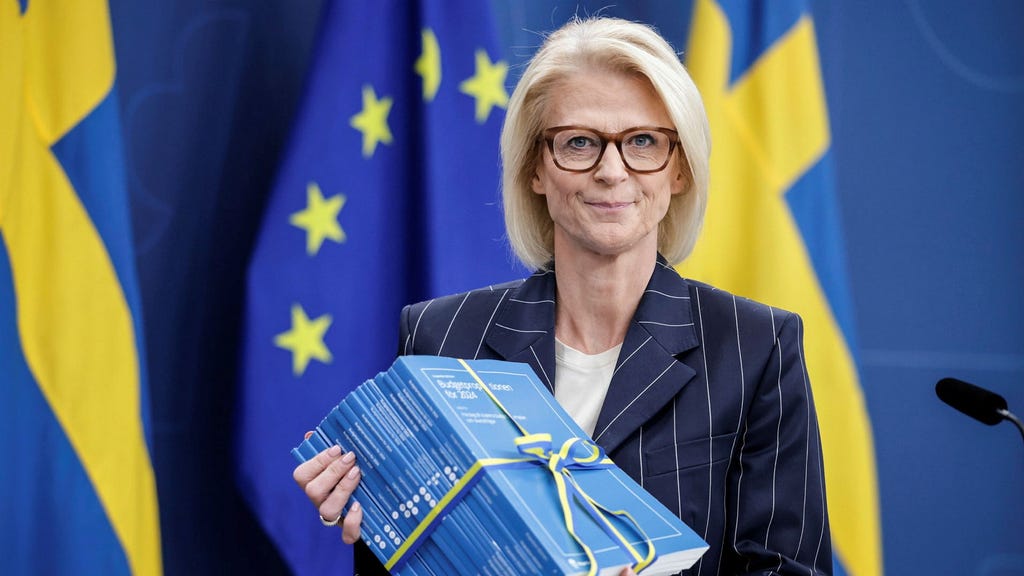The Swedish government’s flagship climate initiative, Klimatklivet (the Climate Leap), a program instrumental in funding public charging infrastructure for electric vehicles among other green projects, has been forced to halt new applications. This abrupt stop stems from a reduction in the program’s budgetary allocation, known as the authorization framework, which dictates the total permissible expenditure for Klimatklivet until 2030. This decision, embedded within the government’s recent budget proposal, has sent shockwaves through the environmental sector and raises concerns about the nation’s commitment to its ambitious climate targets. The implications of this funding freeze are potentially far-reaching, impacting not only the expansion of electric vehicle charging networks but also a wide range of other projects aimed at reducing greenhouse gas emissions.
Klimatklivet has been a cornerstone of Sweden’s climate action strategy since its inception in 2015. The program provides financial support to municipalities, businesses, and organizations for investments in various climate-friendly projects. These projects span a diverse spectrum, from renewable energy generation and energy efficiency improvements in buildings to sustainable transportation solutions and circular economy initiatives. By co-financing these projects, Klimatklivet aims to accelerate the transition towards a low-carbon society and stimulate innovation in green technologies. The program’s success is evident in the numerous projects it has supported across the country, contributing significantly to Sweden’s progress in reducing its carbon footprint. The sudden halt in new applications effectively puts a brake on this momentum, potentially jeopardizing the realization of crucial climate mitigation measures.
The rationale behind the government’s decision to reduce Klimatklivet’s budget remains a subject of debate. While fiscal constraints are often cited as a primary driver, critics argue that this move represents a short-sighted approach to climate action. They contend that investing in climate mitigation and adaptation measures is not merely an expenditure but a crucial investment in the future, offering long-term economic and societal benefits. Moreover, the reduction in funding comes at a time when global climate urgency is intensifying, with scientific reports emphasizing the need for accelerated action to avert the most catastrophic consequences of climate change. This context underscores the importance of maintaining and even increasing investments in programs like Klimatklivet to ensure a swift and effective transition towards a sustainable future.
The implications of this funding freeze extend beyond the immediate impact on project applications. The uncertainty surrounding the future of Klimatklivet creates a challenging environment for project developers and investors, hindering their ability to plan and implement long-term climate initiatives. The suspension of new applications also raises concerns about the potential loss of momentum in the green transition, as projects already in the pipeline may face delays or cancellations due to funding uncertainties. Furthermore, the decision could signal a weakening of the government’s commitment to its ambitious climate goals, potentially undermining public trust and discouraging private sector investment in climate-friendly technologies.
The impact of this decision is particularly significant for the expansion of electric vehicle charging infrastructure. Klimatklivet has played a vital role in supporting the deployment of public charging stations, facilitating the wider adoption of electric vehicles and contributing to the decarbonization of the transport sector. The funding freeze could slow down the rollout of new charging infrastructure, potentially creating a bottleneck in the transition to electric mobility. This, in turn, could hinder the achievement of Sweden’s ambitious targets for electric vehicle adoption and its broader goals for reducing greenhouse gas emissions from the transport sector. The lack of readily available and accessible charging infrastructure could deter potential electric vehicle buyers and slow down the market’s overall growth.
Looking ahead, the future of Klimatklivet remains uncertain. While the current budget allocation represents a significant reduction, there is still hope that the government may reconsider its decision and restore funding to the program in the future. Advocates for climate action are urging the government to prioritize investments in climate mitigation and adaptation measures, highlighting the long-term economic and societal benefits of a green transition. The outcome of these advocacy efforts will be crucial in determining the trajectory of Sweden’s climate action and its ability to meet its ambitious climate targets. The decision regarding Klimatklivet’s funding will serve as a litmus test for the government’s commitment to climate action and its willingness to invest in a sustainable future.














